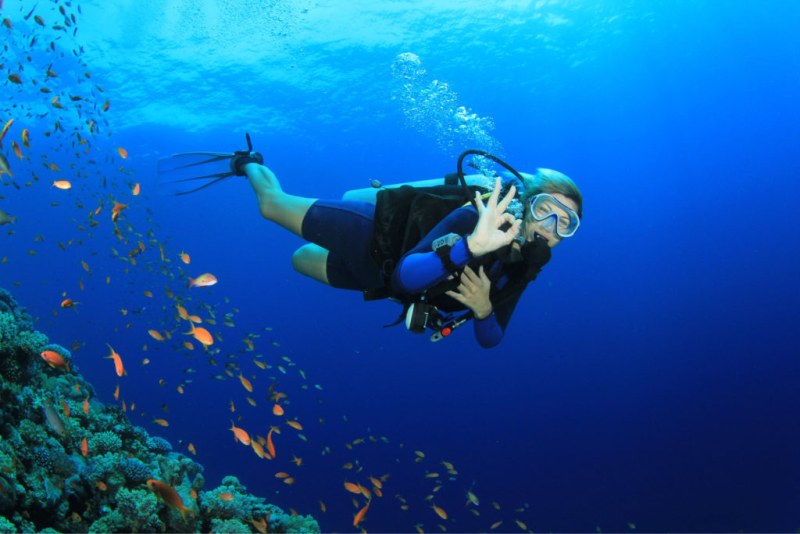As you plan your trip to Fiji, you are probably asking yourself, “Do I need a wetsuit to snorkel in Fiji?” Whether or not you need a wetsuit, you have to consider some factors in relation to the climatic conditions in Fiji as well as your personal constitution.
Factors to consider
Fiji is famous for its warm, tropical climate that is perfect for snorkeling. The weather in Fiji is without extreme heat or cold. The average daytime temperature around the Fiji Islands varies only by a few degrees, because of the influence of the surrounding ocean.
The Summer, from November till April is warm and humid with calm and sunny days often with short but heavy afternoon or night showers. Summer temperatures average about 82 F (28 C). The warmest and calmest is usually February/March with temperatures just over 30 Celsius.
Winters, from May till October bring dryer southeast trade winds that can cause the evenings to be cool and windy. The average daytime temperature in winter is around 77 F (25 C). August usually is the coldest month, temperatures can drop just under 68 F (20 C) on overcast days.
Type of Wetsuit
- Short Wetsuit
Also called a Shorty, this suit has short arms and legs, with only the body receiving cover. It may be the preferred wetsuit in Fiji’s summer when water temperatures are around 85 F (29 C). To travel light that’s all you need to take to enjoy snorkeling in the warm waters of Fiji’s beautiful coral reefs.
I recommend a wetsuit that has a front zip they are easier to put on, the one with back zip forces you to make awkward movements when zipping up.
Last update on 2025-07-17 / Affiliate links / Images from Amazon Product Advertising API
- Long Wetsuit
These suits come with long-sleeved arms as well as legs, they are also called “steamer”. I would recommend a steamer if you traveling to Fiji during the “cold month” or if you tend to get cold easily when in the water. A steamer has also the advantage that it offers protection to arms and legs from rare but still occasionally occurring stinging creatures.
Material Thickness
There is a variety of different wetsuit thicknesses available. In general the thicker the wetsuit, the warmer it will keep you, but the more it affects your buoyancy and it may restrict your movement. A thin material equals less warmth and buoyancy but is way more flexible.
Most people are fine in tropical regions with a 3mm thick wetsuit. A 5mm thick suit may be recommended for the cold month or if one is quite susceptible to getting cold really quickly.
There are also lycra skins that protect only a little against heat loss in water but rather provide protection from sunburn.
Overall, knowledge about the waters and the ocean conditions you are going to snorkel in is important to find the best wetsuit to enjoy snorkeling in Fiji. Snorkel gear is important so that you can truly enjoy the underwater world!


